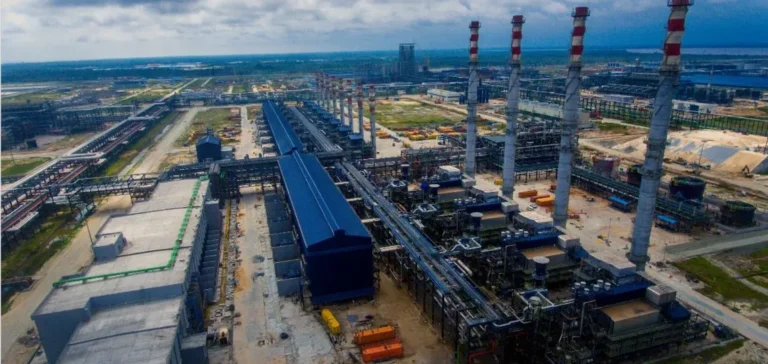After several years of waiting and a series of operational delays, the Dangote Group refinery, located near Lagos, will now expand its activities beyond supplying only the national oil company, the Nigerian National Petroleum Corporation (NNPC). From mid-August, the company will deliver gasoline and diesel directly to a broad range of industrial, commercial, and sector-specific clients across Nigeria. This move aims to streamline the logistics chain and enhance local availability of refined products. In its statement, the group specifies these deliveries will be free from logistics fees, a strategic choice likely to directly impact price competitiveness in the domestic market.
Expansion and Economic Context
This opening to new distributors comes amid significantly rising fuel prices, a consequence of economic reforms initiated by President Bola Ahmed Tinubu. Fuel prices have nearly quintupled over the past two years, inflation largely fueled by the country’s historical dependence on imported refined products. With a production capacity of 650,000 barrels per day, Dangote’s refinery now positions itself as the largest refining infrastructure on the African continent. The potential reduction in costs driven by simplified logistics could significantly influence consumer and industry end prices.
This expansion strategy towards other distributors marks a significant milestone for Dangote in its ambition to influence the domestic energy market. Previously, the refinery supplied only the NNPC, consistent with an initial agreement made with governmental authorities. The authorization to extend deliveries to private operators, previously announced by the federal government, is now becoming an effective operational reality. This major strategic shift could directly impact profit margins and competitive positioning of existing operators in Nigeria’s fuel market.
Immediate Sectoral Impact
Sectors such as manufacturing, civil aviation, and telecommunications—among the first beneficiaries announced of this new direct offering—are closely monitoring the implications of this initiative. According to several analysts, the ability to better control their fuel procurement costs could lead to reduced industrial production expenses and positively influence the competitiveness of Nigeria’s private sector. This dynamic is closely watched by economic stakeholders hoping for a swift easing of inflationary pressures.
Since its official operational start in September, after eight years of construction, Dangote’s refinery initially had limited commercial distribution channels. Now, by diversifying its customer base, the group is taking a decisive step in a market characterized by frequent shortages and significant price fluctuations. The prospect of increased domestic supply could also reshape existing balances in import volumes, potentially affecting imports managed by other distributors active in the Nigerian market.
As this opening to private distributors is now confirmed, the short-term evolution of fuel market prices remains a critical unknown closely monitored by sector professionals over the coming months. Dangote’s strategic expansion thus redefines competitive dynamics in Nigeria’s energy market.






















